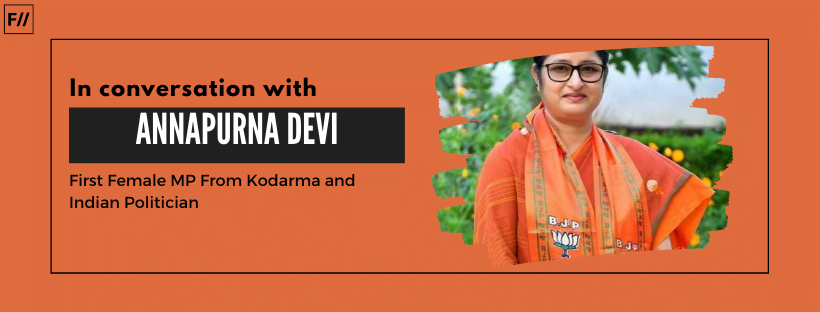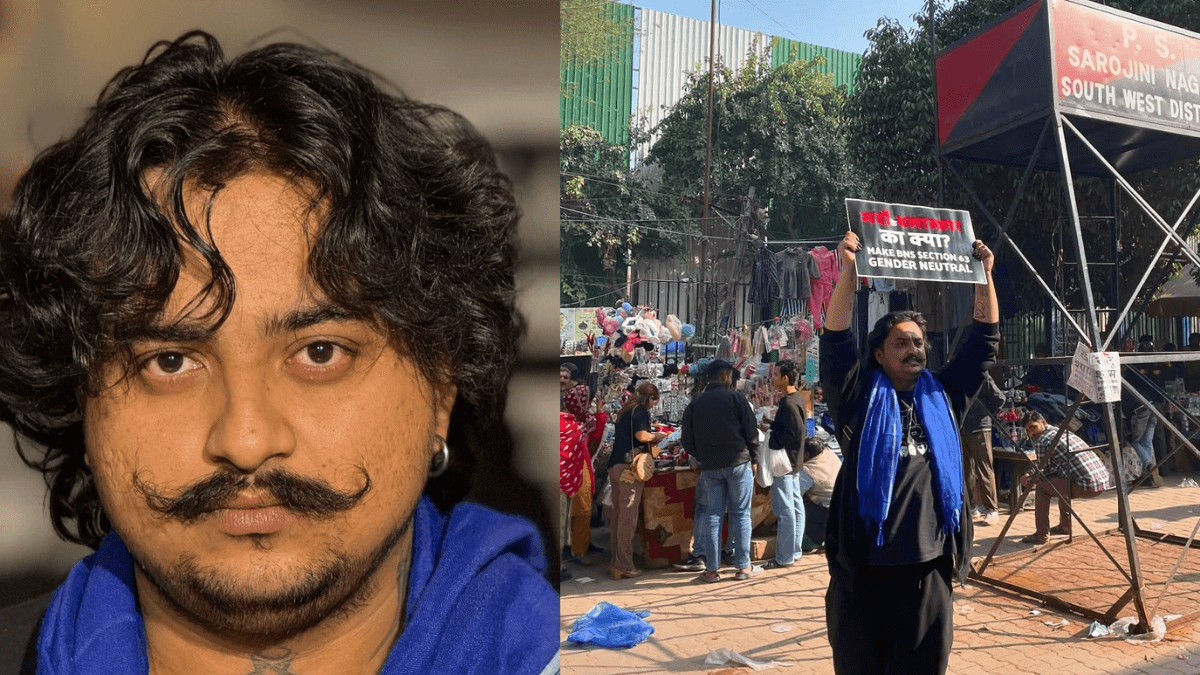BJP’s Annapurna Devi became the Member of Parliament from Kodarma in Jharkhand in 2019 Lok Sabha election. A first-time MP, Devi isn’t new to politics. While she was forced to join politics with Rashtriya Janta Dal in 1998 after her husband, Ramesh Prasad Yadav, died and she contested the by-election from her husband’s MLA seat successfully, Devi never looked back. Three-time MLA, Devi served in varied roles in the state assembly before taking charge as an MP.
First female MP from Kodarma, Devi served as Minister of State, Ministry of Mines and Geology in Bihar assembly in 2000. She was also appointed as Chairperson of Committee on Women & Child Welfare in Jharkhand Legislative Assembly between 2005-2009. Finally, she was also the Cabinet Minister, Ministry of Irrigation, Women & Child Welfare, in Jharkhand assembly from 2012 to 2014. Currently, she is the member of the consultative committee in Ministry of Power and Ministry of New and Renewable Energy.
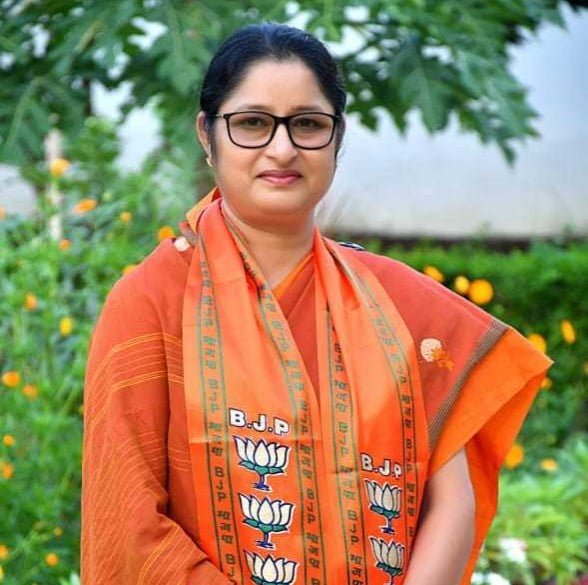
In this interview, she talks about her political journey, working during the COVID-19 pandemic, the plight of Anganwadi workers, Kodarma’s mica opportunity, etc. among other things.
After your husband’s demise, you had to get into politics after which you won as an MLA from Kodarma and continued as an MLA for three consecutive terms. This is the first time you won as an MP, tell us how has your political journey been through all these years.
Annapurna Devi: It is a dream for every politician to become a Member of Parliament once. Similarly, I too saw this dream and it came true very quickly as I was nominated as a candidate. I was anticipating to spend more time in the state assembly but fortunately, I became an MP in my very first Lok Sabha nomination.
My 16 years long tenure as an MLA helped me immensely as when I started to campaign for my MP candidature, I witnessed a lot of support from the public of my constituency. I was also a part of the state assembly in varied capacity so that too brought me closer to the ground. A politician isn’t god that they will do everything that is being asked of them by the public, but the public feels satisfied if their issues are at least heard with a seriousness which is what I did. I may not be capable of working on all the issues that I take into account but the fact that people feel that their representative in approachable, is what matters to them. I would also act on issues immediately that were in my power which also worked in my favour.
Additionally, my husband also had a huge impact on Kodarma as he was the MLA for two terms. It was only after he died that I had to enter politics and stand in the by-election.
First female MP from Kodarma, Devi served as Minister of State, Ministry of Mines and Geology in Bihar assembly in 2000. She was also appointed as Chairperson of Committee on Women & Child Welfare in Jharkhand Legislative Assembly between 2005-2009. Finally, she was also the Cabinet Minister, Ministry of Irrigation, Women & Child Welfare, in Jharkhand assembly from 2012 to 2014. Currently, she is the member of the consultative committee in Ministry of Power and Ministry of New and Renewable Energy.
What were your thoughts on joining politics before your husband’s demise and how do you look back on the circumstances for which you had to join active politics?
Annapurna Devi: Actually, I have had a dense political background as my father, grandfather etc. were also in politics but despite that, I never took an interest in it. Coincidently, I was also married to a politician. While we couldn’t stay together for long and during that time I had my three children, so I was homebound. I knew I might get into politics someday but I had no idea that day would come so soon because of such unfortunate circumstances. When my husband died, our children were all under five years of age, so for me to leave them and contest the election was very difficult. But my parents supported me a lot in raising my children.
For me, mentally, I had a lot of pressure of leaving my kids—no one understands your concerns as a mother; in fact, a politician always has to understand others’ problems and work according to them. After joining politics, I gained a lot of support from party workers as I joined the Rashtriya Janta Dal at that time. After that, I never thought that it was a wrong decision or that it hampered my responsibilities as a mother and a politician in any way.
I realised that if one has passion and dedication in resolving some issue or rolling out action, then they can do so in politics. If I faced any difficulty in my work, then the party workers, who were fond of my husband, always came to my rescue and taught me a lot about managing a constituency as an MLA. I no longer had the common misconception that politics is dirty—I believe that if one is on a correct path, they too can survive in politics.
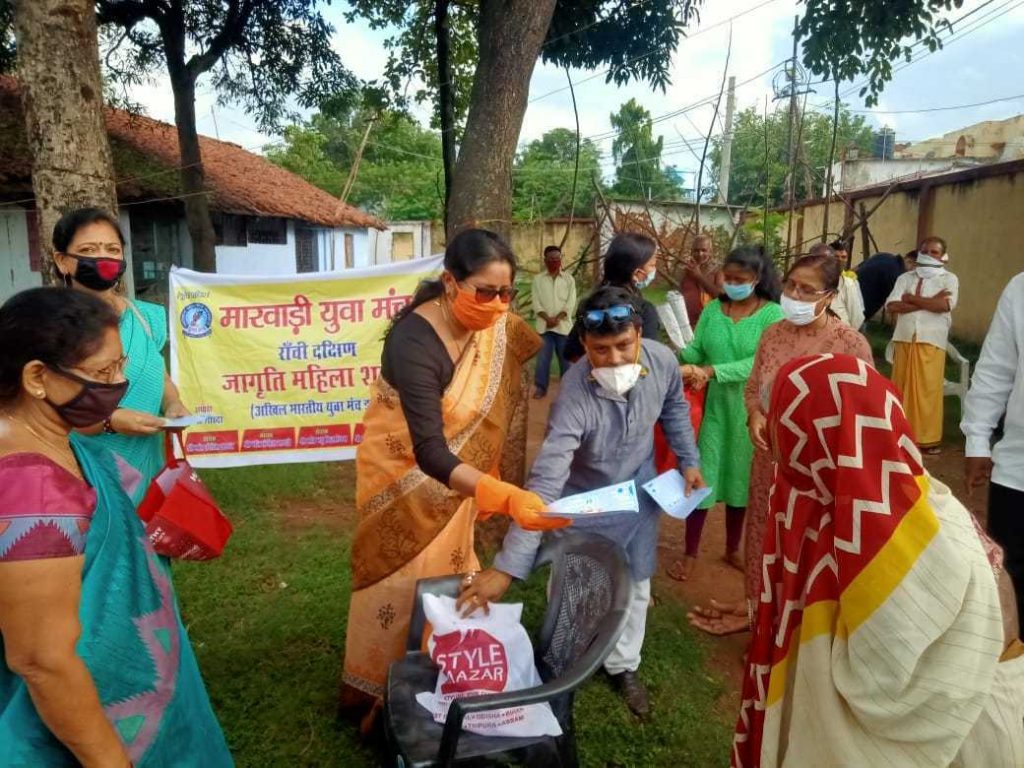
You were with RJD for such a long time and then joined BJP only last year after which you even secured an MP ticket from your constituency, tell us how did all this happen?
Annapurna Devi: I don’t want to dig the incidents from the past but yes, I received a lot of respect even during my time with RJD but sometimes things fall apart between two entities. But as soon as I entered BJP, the state president of the party and committee showed so much trust in me to nominate me—I never felt like I came into a new party as I was to feel at home right from the word go.
What changes have you brought to your constituency and what are some of the new initiatives launched by you?
Annapurna Devi: I wanted to go from village to village in my constituency to do a round-up of the Swacch Bharat campaign that our PM had launched. But because of COVID-19 pandemic, we had to halt our visits. Now we are only working digitally and doing meetings virtually.
The main challenge that people of Kodarma face is that of unemployment which I have raised in the parliament. Locally, the challenges of beautification of cities, underground cabling etc. are there too, which we have raised and are working on. So in the coming years, we will be working on these issues. Even during the pandemic, we are spreading awareness and encouraging people to start their businesses by applying for benefitting schemes of the Ministry of Micro, Small and Medium Enterprises. It also goes well with the PM Narendra Modi’s Atmanirbhar Bharat call.
We want more and more people to come together and start small businesses and strengthen the Vocal for Local campaign. We all need to stand together and manufacture our goods. For this, we are going across quarantine centres as well, to encourage the migrant labourers to start their work within the state so they are not sitting unemployed. Our main focus is helping people with their businesses and in getting work in whatever area of expertise they have. We know that coronavirus has brought with it an economic slump that we need to recover from and we can only do that by manufacturing our goods and supporting local businesses rather than exporting goods from other countries.
The main challenge that people of Kodarma face is that of unemployment which I have raised in the parliament. Locally, the challenges of beautification of cities, underground cabling etc. are there too, which we have raised and are working on. So in the coming years, we will be working on these issues. Even during the pandemic, we are spreading awareness and encouraging people to start their businesses by applying for benefitting schemes of the Ministry of Micro, Small and Medium Enterprises. It also goes well with the PM Narendra Modi’s Atmanirbhar Bharat call.
Kodarma is popularly known as Mica town as it holds the largest deposits of mica in the world—what is the status of the Mica reserves right now and what are your initiatives towards it, while sustaining the surrounding tribal communities?
Annapurna Devi: After the Forest (Conservation) Act, 1980, was passed, mica collection became illegal so one can’t apply for a lease on it. Earlier, it was considered under reserve mineral so the central government was responsible for it; now a few years ago, it has come under the state government. We have been in touch with the Jharkhand government constantly to get them to announce a lease system on it. While we haven’t been entirely successful in that, the government did put up the mica reserves for auction but that isn’t solving the issue of the people living near the mica reserves.
Communities surrounding the mica reserves living in the forests in Giridh and Koderma earn their livelihood solely by collecting mica flakes (Dibhra) from the forest area. But we need to regularise it and that’s what I have been discussing with the state government. Also, I believe that if mica mining starts again, it will give immense employment opportunities to the people of Jharkhand and they wouldn’t have to migrate to other states for work. If the state government has this as an agenda, then they can make it happen, but I feel there is some confusion around it and we are working towards removing those confusions so the state government takes an initiative. And if it doesn’t do it now, during the pandemic, then it would be truly an opportunity lost.
How is your constituency tackling with the COVID-19 pandemic?
Annapurna Devi: We are testing people increasingly but the cases of COVID-19 are rising too because community transmission has begun. But we are working on cases that get reported to us proactively with the help of district administration. In the last six months of lockdown, we have been helping the migrant labour of Jharkhand who got stuck in other states to come back to their home state by collaborating with different states. We had our people spread across the country so it was important for us to bring them back for which we also started a helpline number so people can reach out to us.
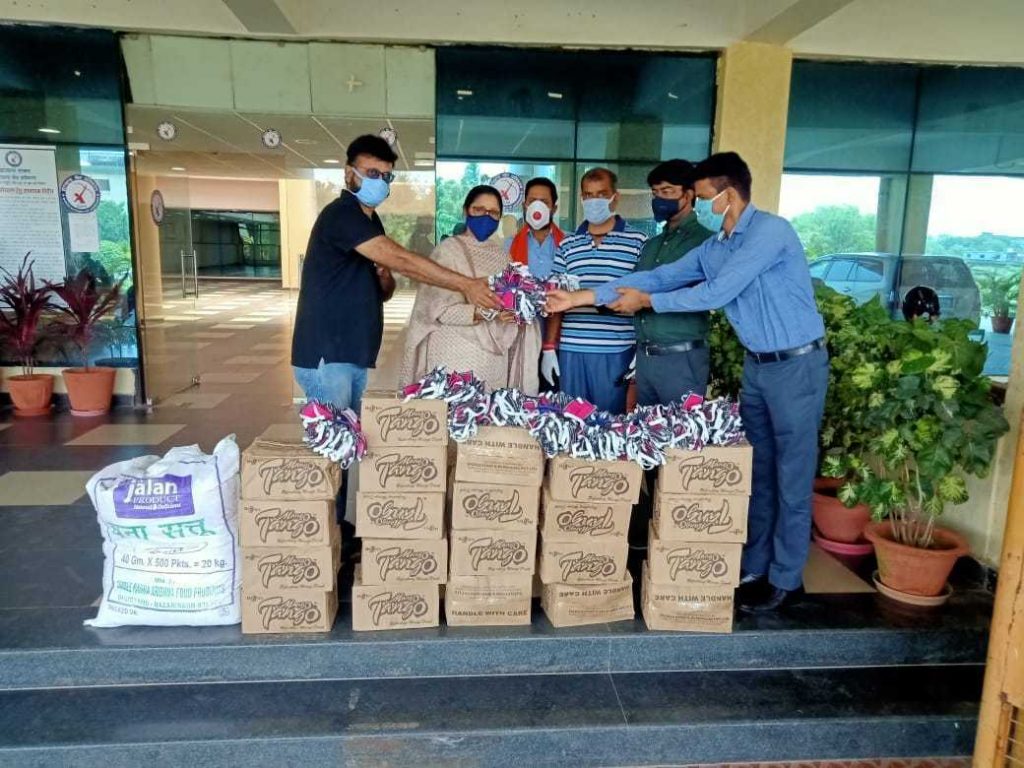
We collaborated with organisations in distributing ration and food grains to people who had arrived in their villages but were kept in institutional quarantine. We distributed the NAMO kits which comprised of a mask, sanitizer and ration. We got women from various SHGs to make masks for us. We are helping the people in every way we can and we have our party volunteers spread across the constituency who also keep an eye out for any help that’s needed by the public.
Also read: Appointments In Women’s Commissions Are Political: Kerala MP Ramya Haridas
Anganwadi workers who are also working on the frontline have been fighting for their wage payment for a few years now with the Jharkhand government. They complain that even if they increased the amount, getting paid monthly is a continuous struggle for them. Are you in the know of this issue?
Annapurna Devi: Yes, I know about this and the state government makes the Aanganwadi workers work a lot day in and day out, but it does not pay them accordingly and they must get their due. Anganwadi workers have to leave their family and home to work for the government which doesn’t respect them well. They should at least get the money to raise their children well but their wages are low and should be increased. Their demands are not superficial and must be met.
I have always raised my voice for them and I believe that they must be given insurance as they go from village-to-village and any unfortunate incident can take place with them.
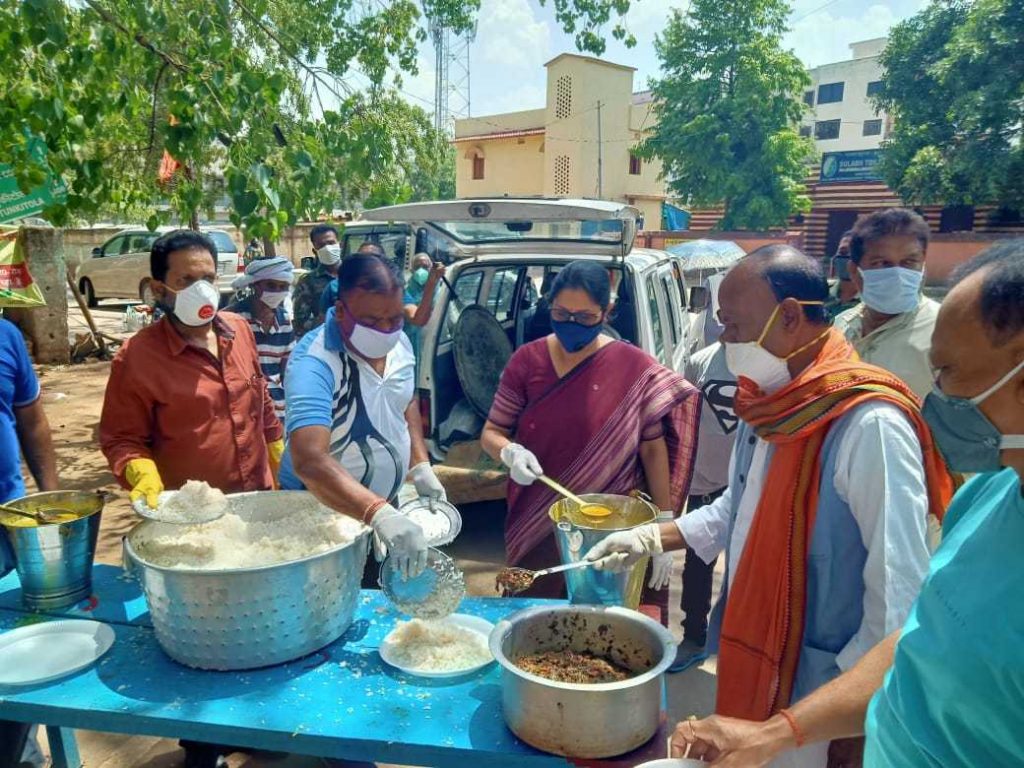
Since your constituency is majorly composed of rural area with unemployment being the key challenge for people, how is your leadership helping people in fighting against the pandemic?
Annapurna Devi: The state government hasn’t devised any plan to help people economically or to encourage people to become self-dependent. They should have bolstered the MSME state machinery—established a state commission that would help people in starting their business as they started to pour in from all parts of the country. It was a good opportunity for the state government to stimulate people’s interest in using their expertise for their profit rather than somebody else’s in some other state but it didn’t cash in on it. We are demanding this over and over but the state government isn’t listening.
I can only do as much as motivating people and helping them in getting their business loans passed so they can eventually start work and become job providers. We either have stone crusher work or mica flakes collection to generate employment.
How does a typical day look like in the times of coronavirus in the life of an MP?
Annapurna Devi: Earlier I would wake up early, get ready and go to my office where I would meet my colleagues. Then I would go to villages, meet people, get to know about their concerns and work on them. This was my routine when parliament used to not be in session. Now, I can’t go out much even if I want to because when I go to villages, a huge crowd gathers every time and it doesn’t feel right to ignore them and not listen to their issues because the situation is actually dire in villages.
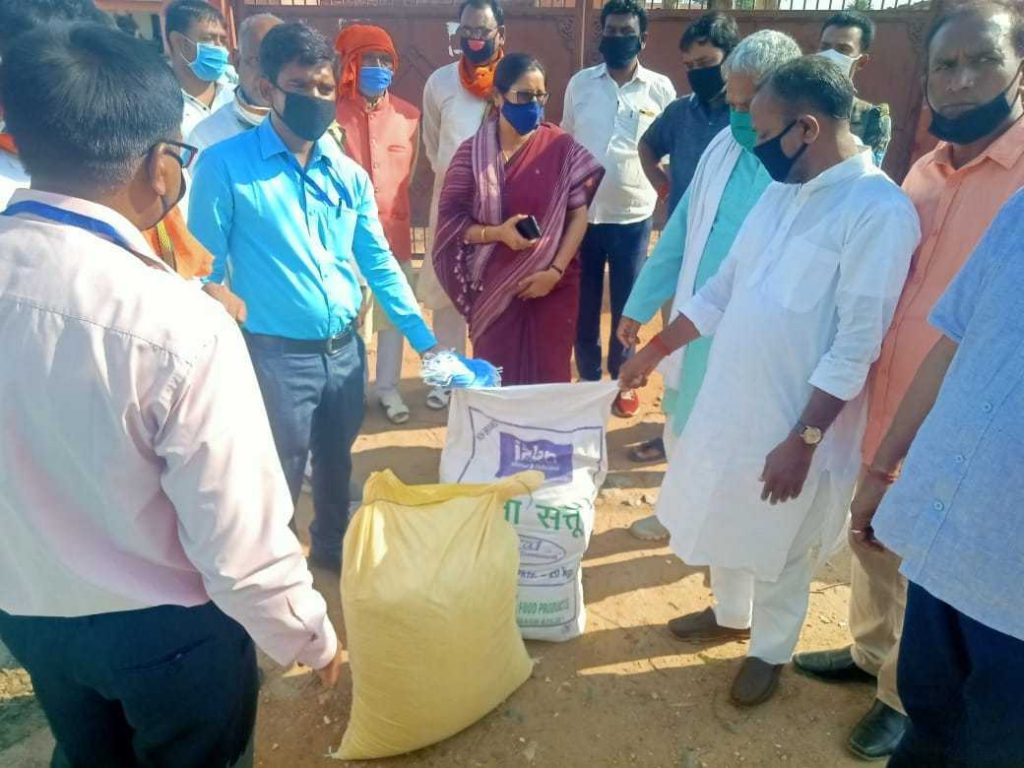
How has the experience of being a female MP been for you? We’re asking this in the context of women being a minority in the parliament and politics being a highly misogynistic workplace.
Annapurna Devi: I have been in politics for over two decades now, but as I said, that if we resolve to do something, there is nothing that can stop women from doing it. But it is true that we talk about gender equality a lot, but there are many prevalent inequalities on the basis of men and women still.
When I entered politics in 1998, I was one of the first women from Jharkhand to contest in the election but after the law was passed that seats will be reserved in Panchayat for women to be elected as Sarpanch, many women came to the fore and today over 50% women are Sarpanch in Jharkhand. We have women MLA and other women in a representative position. So we do have women in power positions in Jharkhand today, but I would like to highlight that women Sarpanch are not allowed to work independently and their husbands often take charge of their work. Whenever I see such a scenario, I make it a point to tell the man to let their wives function as Sarpanch which is their legitimate position.
Also read: Despite 74 Years Of Independence, Dalit Lives Haven’t Improved Much: Amalapuram…
It will take some time but we are moving towards progress.
All pictures have been provided by Annapurna Devi.
About the author(s)
Poorvi Gupta is an independent journalist who has been covering gender through the intersections of caste, class, colour, age, community etc. Her work revolves around various issues that expose gender inequality and human rights violations in Indian society. In her free time, she calls out manels and casual sexism on social media and in her house too.
